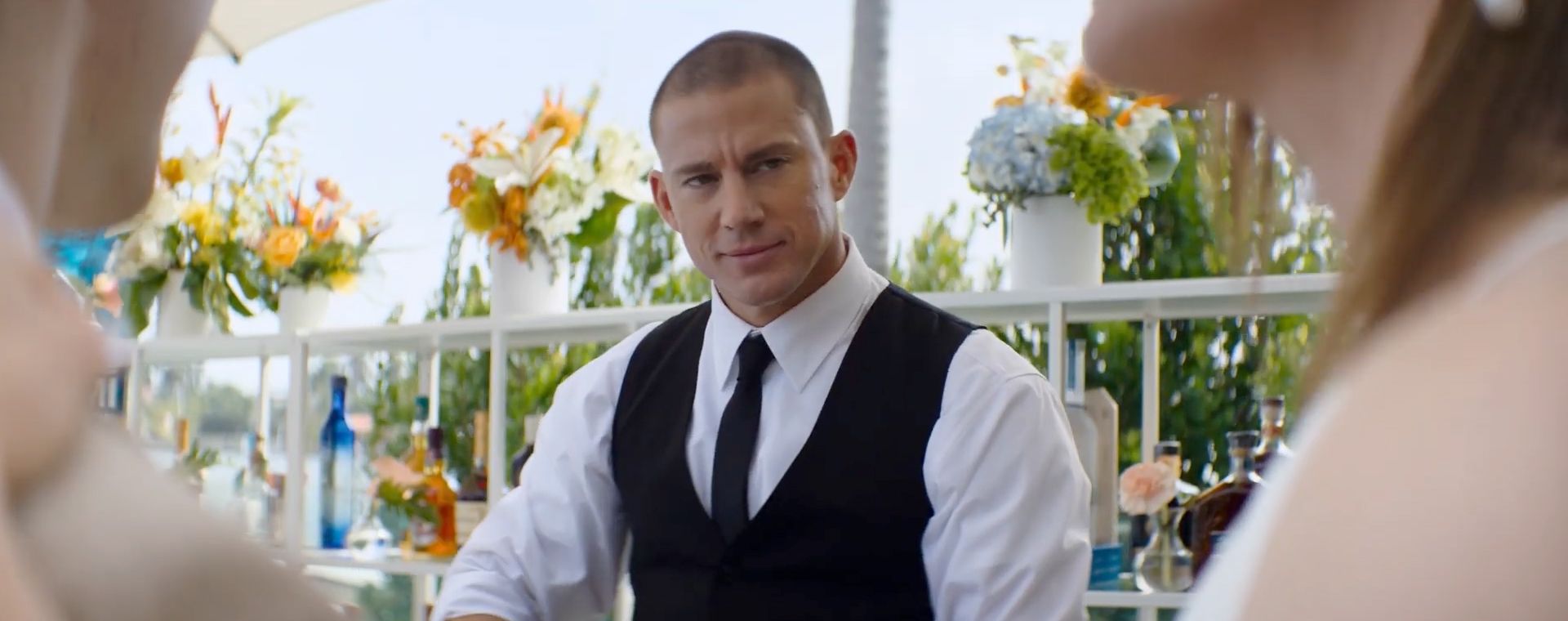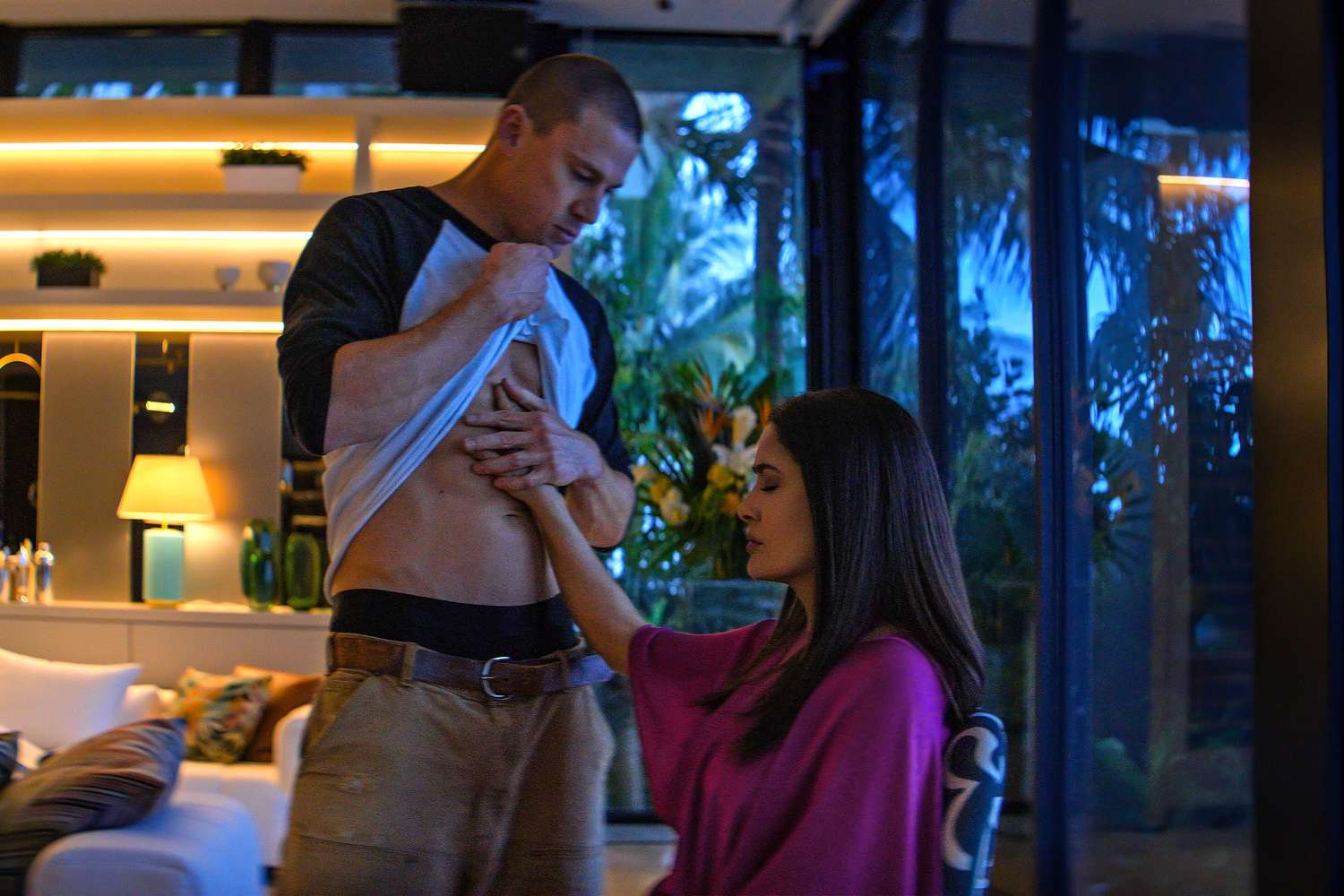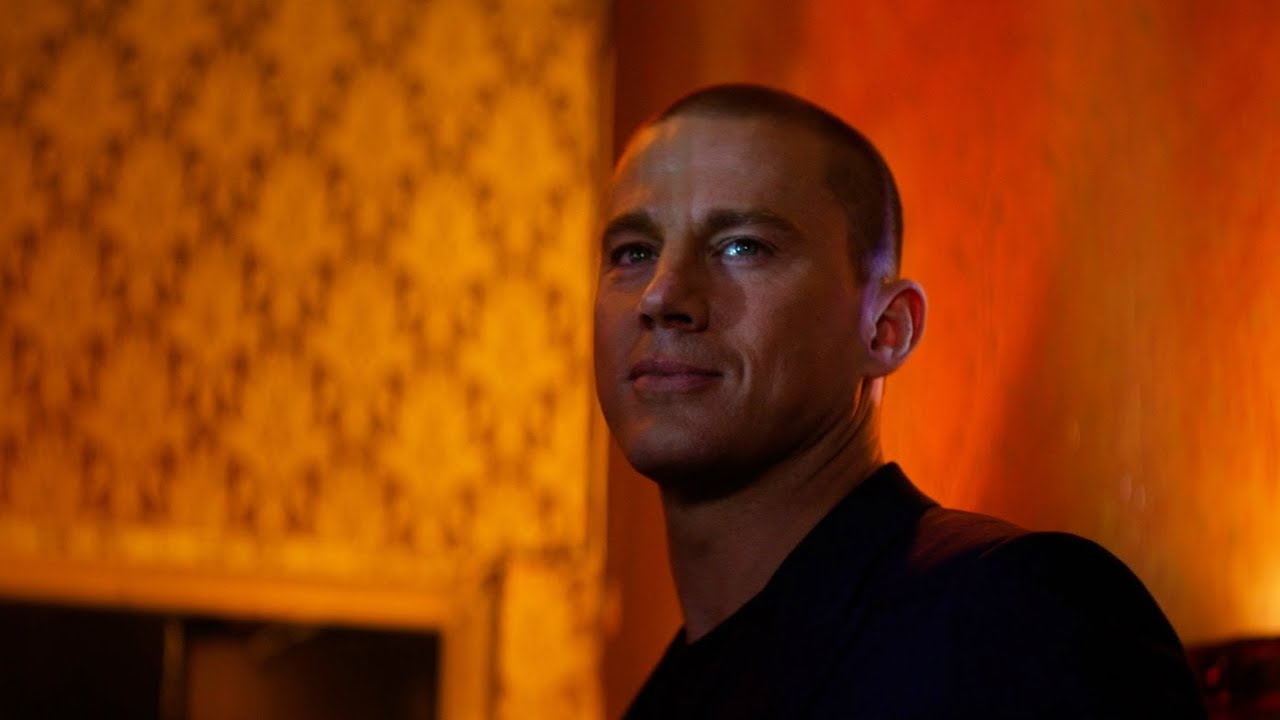Even with his name appearing in the title, Magic Mike has always been part of an ensemble of dancers/strippers whose stories and personalities were explored in the films first launched by Steven Soderbergh in 2012. This was particularly the case in Magic Mike XXL, which may have actually been more well liked than the first, and which gave, for example, Donald Glover his own song/showcase in the middle of the movie. These movies were as much about a lifestyle as a person.
Magic Mike’s Last Dance has pared down that focus to its detriment. The inclusion of prior series regulars Joe Manganiello and Matt Bomer, for instance, is perfunctory to the point of being slapdash. After his latest adventure has brought him to London to become the surprise director of a theatrical production that’s getting a cabaret-style makeover, Mike Lane (Channing Tatum) gets on a Zoom involving these two and two other compatriots from his prior life. It would seem obvious that these guys are going to parachute in at the end for the final dance number, but nope – they are basically literally frozen out of the proceedings, as their Zoom images spend as much time buffering as engaging in anything like the motion that epitomised their appearances in the first two films.
Instead, Tatum has a genuine full-blown co-star in Salma Hayek, who plays the rich soon-to-be divorcee who meets him in Miami while he’s bartending a charity fundraiser. An erotic dance that Maxandra Mendoza (“Max”) desperately needs turns into a night of passion, but then a potential business partnership that’s supposed to be devoid of romance. She sees Mike’s not fulfilling his dreams tending bar, and she wants him to come to England, where she lives with her daughter (Jemelia George), for a month-long job that will utilise his skills for bumping and grinding. Mike is reluctant – he says he doesn’t do this anymore, and the dance he gave Max was supposed to be his “last” – but he’s also got a sense of adventure, and his life in Florida is really going nowhere.
Max shrouds in surprise what the job actually is, and it certainly qualifies as a surprise to us viewers too. Max has taken ownership of a historic theatre currently playing the stuffy romance Isabel Ascendent, which has notably retrograde gender politics, as its lead character is trying to decide whether to marry for love or money. It would seem this mirrors a choice Max once made, now writ large with her marriage to a rich media mogul going through divorce proceedings. Despite the play’s nightly sellouts, Max wants to blow it up and turn it into a revue involving exotic dancers – which will also be hatched on its unsuspecting audience as a surprise after they’ve already sat down for what they think will be a very traditional night of theatre.
The ways Soderbergh wants to go outside the box of our expectations are indicative of the filmmaker’s desire to constantly challenge himself. He once thought the best way to challenge himself was to retire from filmmaking altogether, but Last Dance marks his whopping eighth new feature after his retirement didn’t take. Returning to this series after he handed over the directing reins to Gregory Jacobs in Magic Mike XXL may seem to return the opposite verdict. But putting Florida in his rear view mirror and transplanting Mike Lang, a consummate modern Floridian, to jolly old England is certainly more than just the desire to make a fish-out-of-water movie. The at least superficially radical recalibration of the series’ core parameters reflects his own hunger for new artistic challenges that don’t feel so familiar to him. This is also exemplified in the narration by the actress who plays the daughter, which dabbles in ethnographic musings about the role of dance in culture and society.
In a long-running series, though – at three films, Magic Mike now qualifies for that description – you are also grappling with the expectations of your loyal viewership. Last Dance does have enough to feed the hypothetical audience of overheated middle-aged women, but it goes through long stretches that contain nothing of the sort. They’re at least given a good amuse bouche at the very start. The steamy opening dance between Tatum and Hayek is equal parts erotic and athletic, and as much a marvel as the 42-year-old Tatum still having terrific stripper abs is the gymnastic moves of the now 56-year-old Hayek. If we are to imagine screenings of Last Dance being populated by scores of women out with their girlfriends after several martinis, we’d also imagine them hooting and hollering during this film’s gyrations. This scene, though, is sultry enough that it might take their breaths away instead.
Some of the more typical meat of this series is thrown to them as the film reaches its climax, but there are a lot of logistics and character developments dividing up the beefcake moments. We are also introduced to the aforementioned daughter, who resents the way Max fumbles her way between projects that obsess her, as well as Max’s acerbic butler (Ayub Khan Din), who shows up rather more often than one would think was necessary.
Crucially, we don’t meet any of the new dancers, plucked from around Europe effortlessly and apparently without interruption to their normal lives. It may be that only one of these characters even gets a name, and we only know that because he is introduced through a solo number. There’s a valid feminist agenda to focus more on Max than the beefcake, but it’s in these moments we’re reminded how far the series has strayed from its original design. Straying can be a welcome thing, especially if a course correction is needed, but the first two films already felt like they were significantly in the camp of empowering the women who paid for the services of these men. Those movies were already on the right side of progressive politics, and by reducing these men – who are identified as sex workers, mind you – to interchangeable sculpted physiques threatens to send things back in the other direction.
Still, it would be hard to resist the climax of Magic Mike’s Last Dance, which shows us the transformation Mike has imagined for Isabel Ascendant, giving us the fleshy pleasures we so desire and featuring enough water to drown a small village. There’s some suspension of disbelief needed here, but we give it willingly. In this scene the film doubles down on the series’ notion that a certain repressed puritanism, which has a very literal embodiment in the film’s English setting, can be cured by a dozen sets of swivelling hips. No harm ending a fundamentally realistic series with a dive into the fantasy for which it has always secretly striven.
Magic Mike’s Last Dance is currently playing in cinemas.



